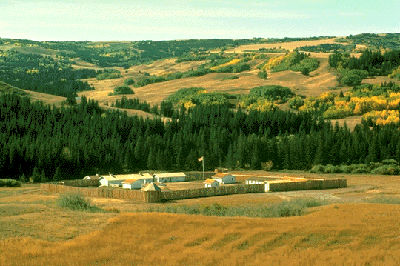
Following the defeat of General George Custer (1876), the Mounted Police centered at Fort Walsh were called upon to mediate with refugee Sioux who had followed Chief Sitting Bull across the United States border, thereby creating an international incident. With the coming of the railway, the signing of treaties and the return of the Sioux to the US in 1881, Fort Walsh was abandoned. In 1942, the RCMP established a remount ranch to breed and raise horses for the force. In 1968, the property was transferred to Parks Canada and became a national historic site.


 Share on Facebook
Share on Facebook Share on X
Share on X Share by Email
Share by Email Share on Google Classroom
Share on Google Classroom

